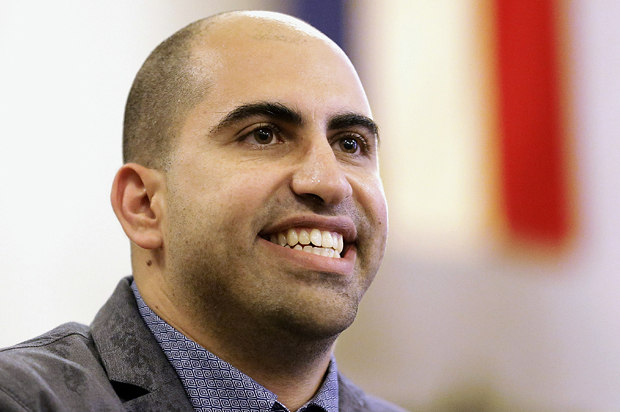A federal judge has just ruled against the University of Illinois at Urbana-Champaign, which had sought to have Steven Salaita’s case against it tossed out. At the same time, the chancellor who had fired Salaita, Phyllis Wise, has just resigned.
Salaita was the professor whose often acerbic and biting tweets critical of the state of Israel, particularly during its bloody attack on Gaza last summer, led to his being fired from his position at UIUC. His dismissal immediately led to worldwide outrage–thousands signed a petition demanding his reinstatement, and thousands, including Cornel West and Angela Davis, honored a boycott of the university. A dozen prestigious academic organizations wrote letters of protest.
What is at stake are issues of academic freedom, free speech, faculty governance. But also, and tremendously important, is the issue of donor interference in faculty governance. Salaita has sued for the emails that were exchanged between the university and wealthy donors regarding his dismissal.
Something odd occurred during the process. After his tweets were disclosed by a local paper, the university defended Salaita on the basis of free speech and academic freedom, but after wealthy donors started to complain UIUC did an about-face. Emails have already been disclosed that show that there were indeed extraordinary discussions around how to “handle” Salaita’s case. Chancellor Wise’s resignation should be read in light of all this.
The Association of American University Professors, after a lengthy investigation of UIUC, has placed it under censure, the strongest condemnation that group can make, because of its handling of the Salaita case.
The judge’s ruling went precisely to the two linchpins of the university’s argument that its firing of Salaita was justified. First, the university argued that since the formal offer of employment it sent to Salaita was not signed by the trustees, he was not officially employed by it. It also argued that because his tweets were deemed “uncivil,” and that “civility” was a prime value at the university, he would be an undesirable employee. The court strongly disagreed: Here is the report of the Center for Constitutional Rights:
The court firmly rejected the university’s claim that it did not have a contract with Professor Salaita, stating, “If the Court accepted the University’s argument, the entire American academic hiring process as it now operates would cease to exist.” The court further rejected the university’s attempt to dismiss Professor Salaita’s First Amendment claims, finding that his tweets “implicate every ‘central concern’ of the First Amendment.”
People interested in academic freedom, freedom of speech and the independence of universities from outside influence will want to follow this case as it moves forward. It promises to be interesting reading.

